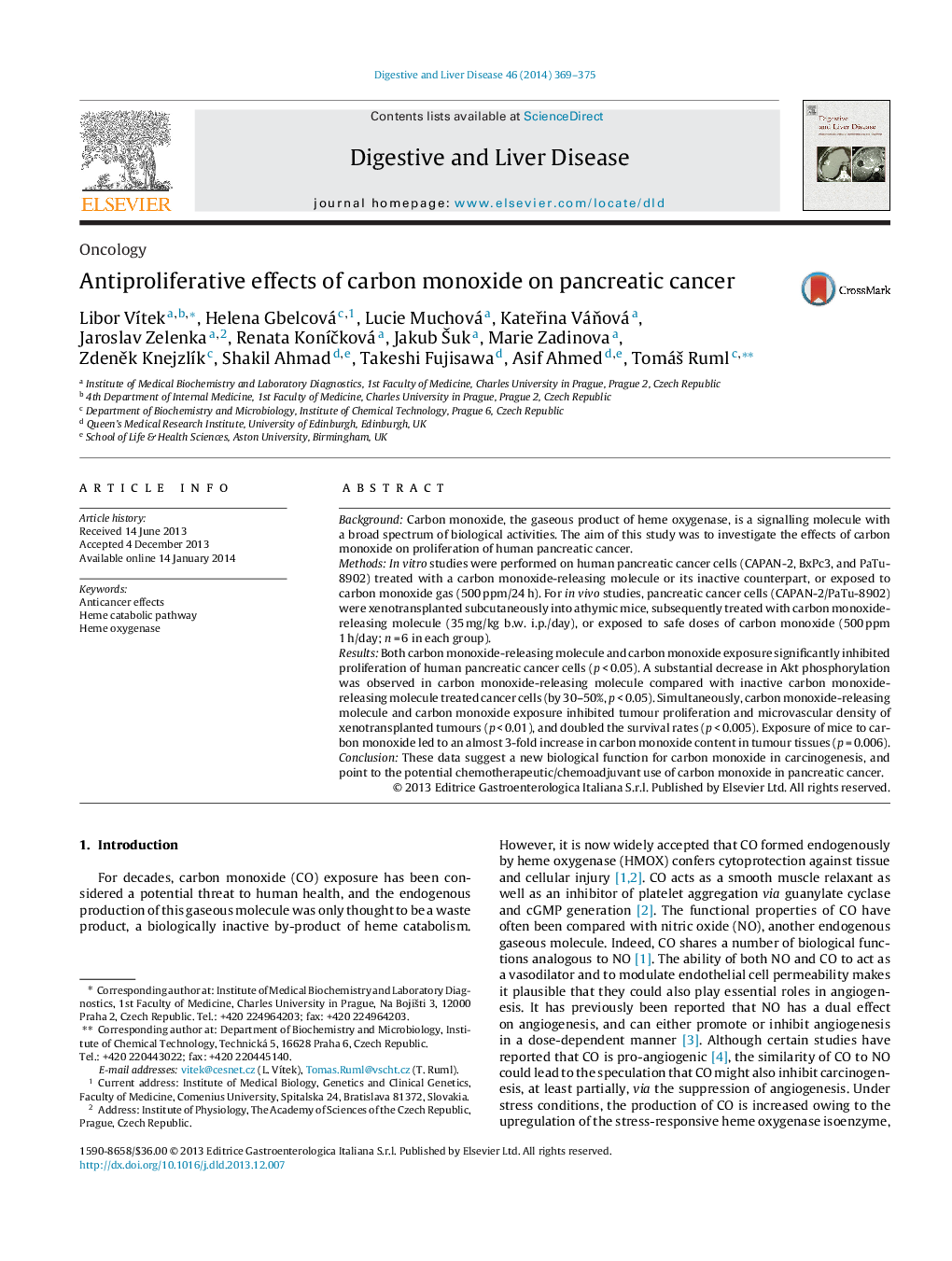| Article ID | Journal | Published Year | Pages | File Type |
|---|---|---|---|---|
| 6088477 | Digestive and Liver Disease | 2014 | 7 Pages |
BackgroundCarbon monoxide, the gaseous product of heme oxygenase, is a signalling molecule with a broad spectrum of biological activities. The aim of this study was to investigate the effects of carbon monoxide on proliferation of human pancreatic cancer.MethodsIn vitro studies were performed on human pancreatic cancer cells (CAPAN-2, BxPc3, and PaTu-8902) treated with a carbon monoxide-releasing molecule or its inactive counterpart, or exposed to carbon monoxide gas (500 ppm/24 h). For in vivo studies, pancreatic cancer cells (CAPAN-2/PaTu-8902) were xenotransplanted subcutaneously into athymic mice, subsequently treated with carbon monoxide-releasing molecule (35 mg/kg b.w. i.p./day), or exposed to safe doses of carbon monoxide (500 ppm 1 h/day; n = 6 in each group).ResultsBoth carbon monoxide-releasing molecule and carbon monoxide exposure significantly inhibited proliferation of human pancreatic cancer cells (p < 0.05). A substantial decrease in Akt phosphorylation was observed in carbon monoxide-releasing molecule compared with inactive carbon monoxide-releasing molecule treated cancer cells (by 30-50%, p < 0.05). Simultaneously, carbon monoxide-releasing molecule and carbon monoxide exposure inhibited tumour proliferation and microvascular density of xenotransplanted tumours (p < 0.01), and doubled the survival rates (p < 0.005). Exposure of mice to carbon monoxide led to an almost 3-fold increase in carbon monoxide content in tumour tissues (p = 0.006).ConclusionThese data suggest a new biological function for carbon monoxide in carcinogenesis, and point to the potential chemotherapeutic/chemoadjuvant use of carbon monoxide in pancreatic cancer.
